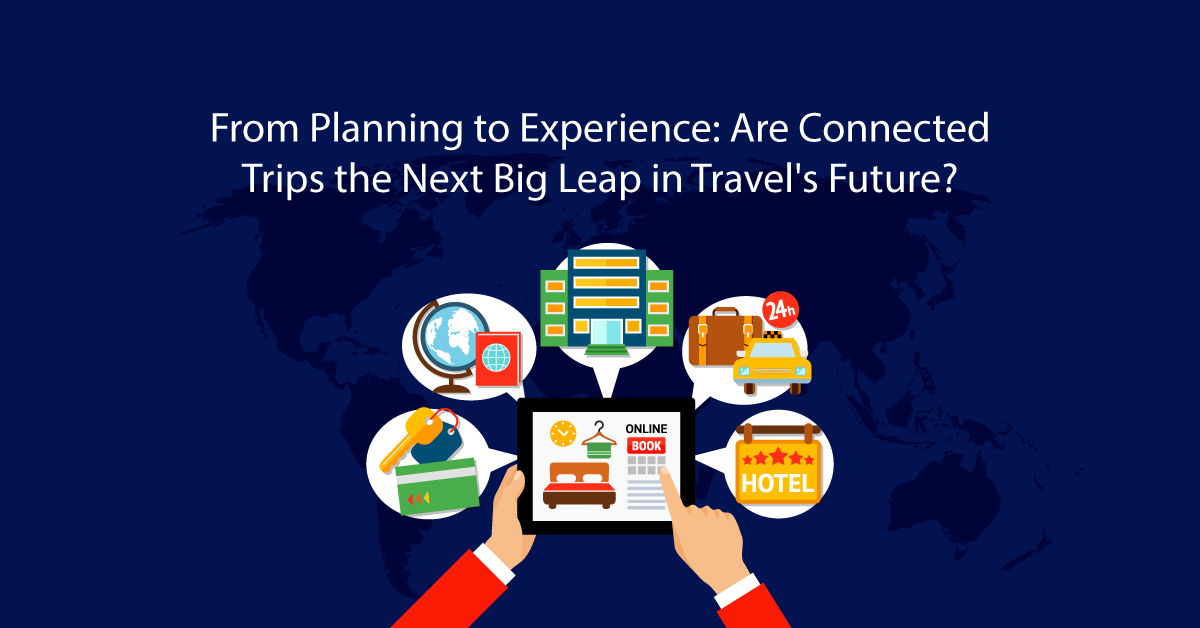Our CEO, Dharmendra Ladi, was one of the panelists in the yearly event “Distribution 2.0” organized by Hyperguest. The event’s agenda was to discover areas that impact conversion numbers in the B2B travel market.
Here we present the entire interaction, which answers the larger question: What are the variables that drive or promote conversion in today’s B2B travel market?
Q. Price and content are arguably two entirely separate factors that influence conversion ratios — and they are not the only factors impacting conversion either. What do you think impacts conversion ratios most?
Ladi: Well, there are so many factors that affect the conversion ratios, like your website design, the unique user experience, the personalization that you can embed on your website, or the loyalty programs which you are running. But, I believe, the price and content are undoubtedly the primary factors that impacts the conversions the most. Of course, the impact of these factors varies for different types of travel businesses, like the B2B travel business verse B2C travel business versus any corporate travel business.
The content requirements and expectations are vastly different for type of travel business that you are running. For example, for the B2B travel market, one can have comparatively less focus on static content on your portal as compared to the prices.
So, in my opinion, the good content and the integrations with good content sources can make a whole lot of impact on upselling as well as on cross-selling. For example, a highly articulative content generated using technologies like NLP, machine learning and AI OR the different data derivatives from social content platforms are driving the conversions at an unbelievable pace.
And most of the survey’s reflect the same sentiments, the hotel media and end user reviews are the most influential content attributes in decision making process.
Also, I believe the amount and the pace at which content is getting produced worldwide for accommodations is humongous. There are petabytes of content getting produced every day on different platforms, right. So, understanding and marketing the data about the data i.e., Metadata is very crucial for travel businesses. There is no point in bombarding a whole lot of content on end customers and expect them to make the booking decision. It can also negatively impact the conversions.
Q. How did conversion ratios generally evolve during COVID — and what are we seeing now as we return to normal?
Ladi: Of course, during and post Covid, the leisure travellers have been preferring the accommodation which are perceived to be safe and sanitary. For example, we have seen surge of 65% in search patterns with words like ‘cleanliness’, “Safety”, “hygienic”. And yes, this was not applicable only for the accommodation’s bookings but also for the flights travel.
Also, the traveller behaviours have become more opportunistic in my experience, with bookings are being made with much closer to the travel dates, especially for domestic travel. At the same time, the future travel restrictions and quarantine requirements has led to a strong preference for flexible bookings with the option for refunds, a last-minute cancellation.
So, during pandemic most of us had lot of time at home and to make the new travel plans, people had researched and shortlisted a lot of destinations which they wish to visit.
However, people are now taking holidays more than before to catchup on their holidays which were missed during COVID 19 and they want to feel fresh. So, travel as a market is growing faster than ever and I am hoping it will continue to be very aggressive in future as well.
Also, for many people, travelling is now all about experiencing adventures that they might only do once in their lifetime. So, in some way, lang haul adventure trips are also helping to upscale the revenues and conversion ratios.
In a nutshell, the pendulum seems to be swinging back towards more traditional priorities like the content, the cost, the timing of the travel, or the yearly travel schedules. And that is for me is really very good sign for boosting the conversion ratios and revenues.
Q. Is all of what we’re discussing here the same for other types of travel products, for example car rental, flights, or even other types of accommodation such as apartment rental?
Ladi: Yes, it is the same for other travel products as well at different scales.
Private jet market has really grown during pandemic.
Apartments is another business which has seen unbelievable growth in pandemic because travellers preferred the long haul, safe and hygienic apartments at very affordable prices over the hotels where comparatively more human intervention is required to operate.
There are travel trends for the staycations or domestic vacations. They are popular like never before. And it has pleasantly impacted the car rentals as well as domestic flight travel business.
Also, the application of Metaverse in airline industry is looking very promising since the Airline companies are looking to build the ambitious aircrafts in Metaverse.
In short, the immersive and creative content along with right pricing are going to be the key factors for conversions.
Vervotech is a leading Hotel Mapping and Room Mapping API that leverages the power of AI and ML to quickly and accurately identify each property listing through the verification of multiple parameters. With one of the industry’s best coverage of 98% and an accuracy of 99.999%, Vervotech is quickly becoming the mapping software of choice for all leading global companies operating in the travel and hospitality industry. To learn more about Vervotech and the ways it can enhance your business in the long run contact us: sales@vervotech.com








